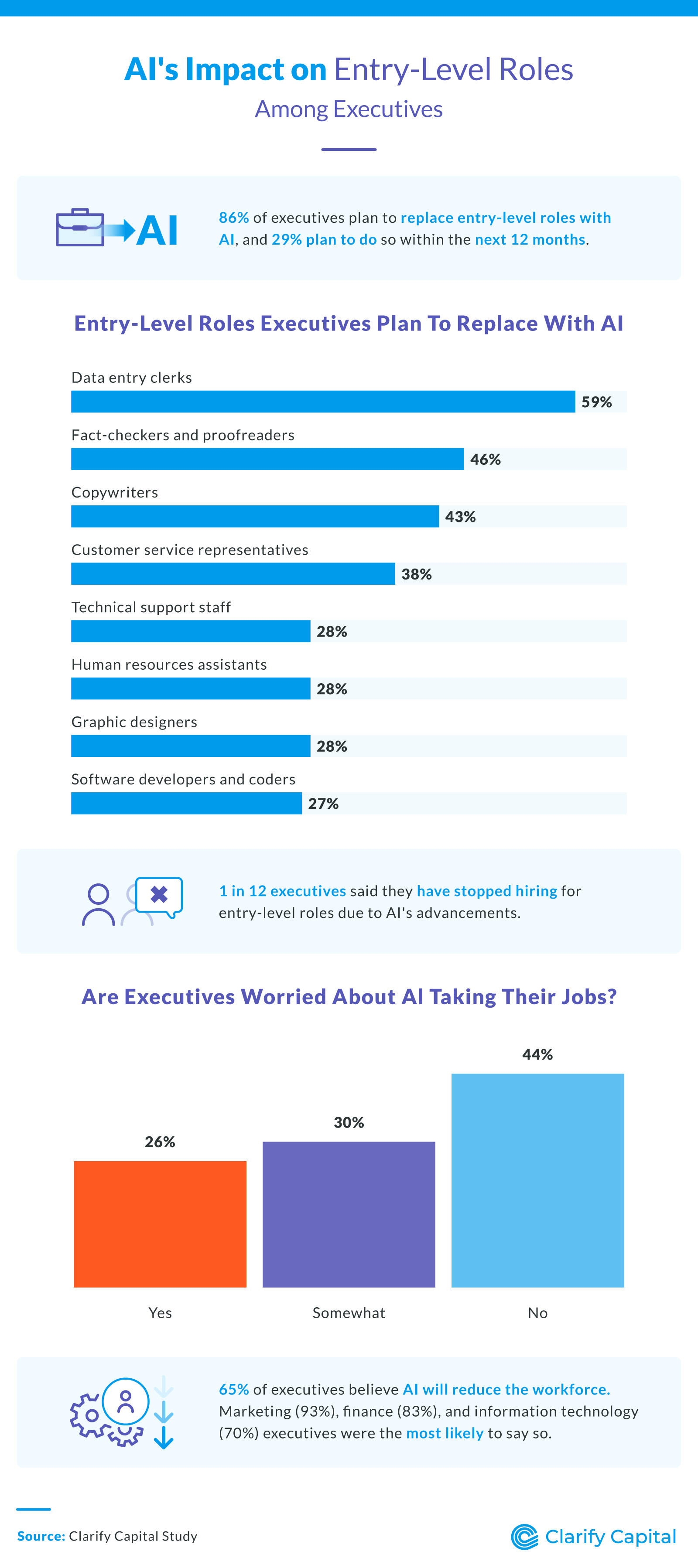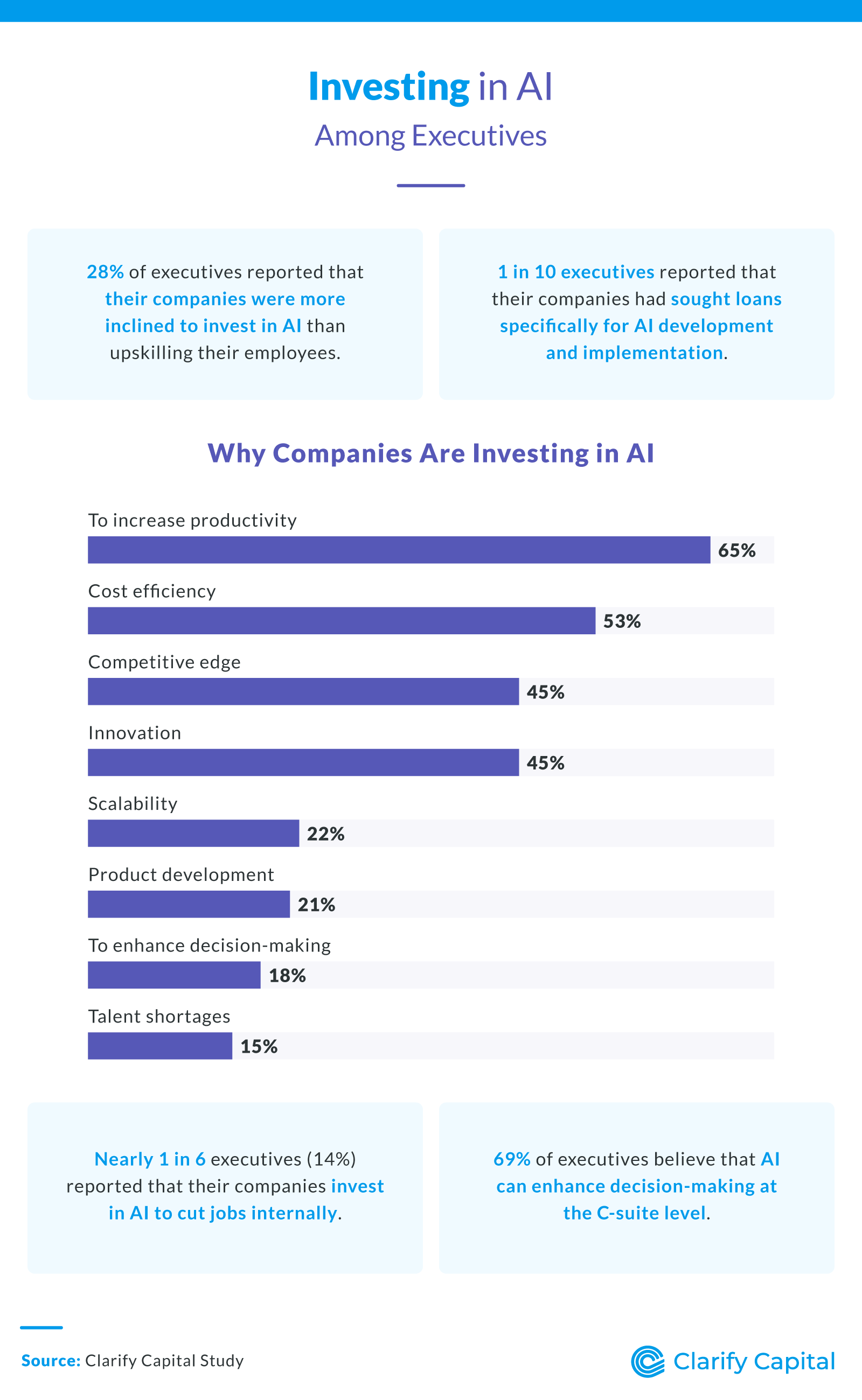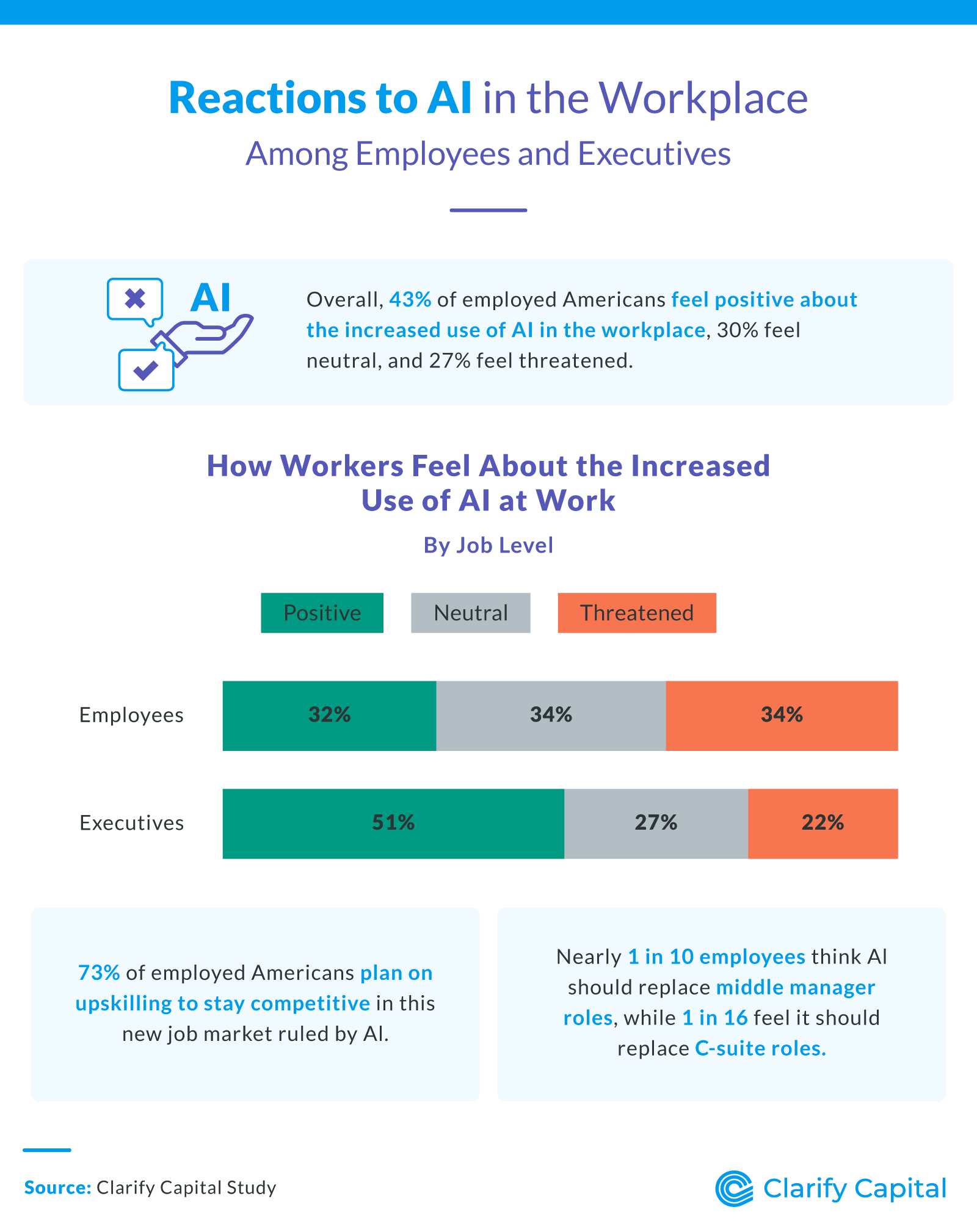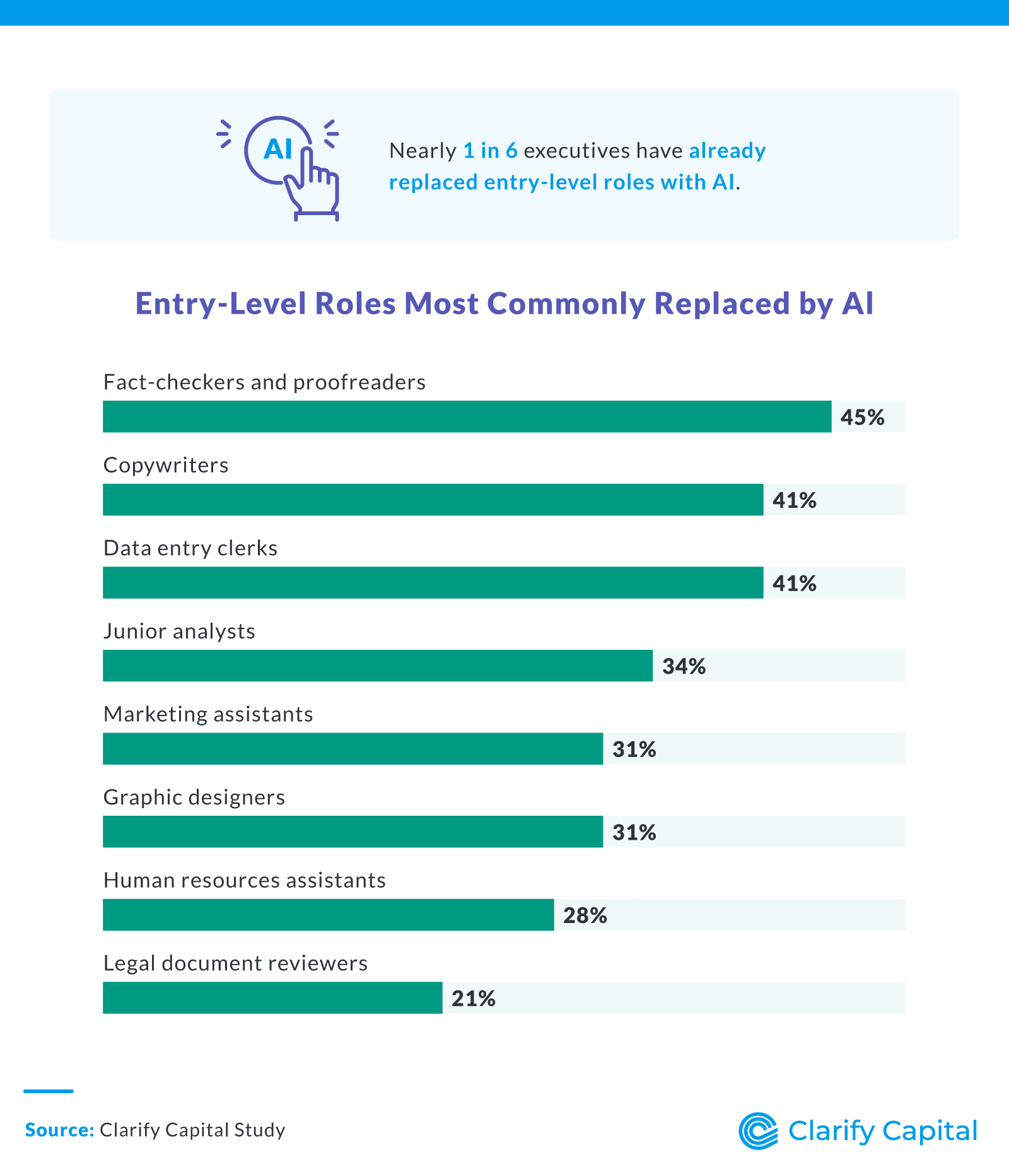Key Takeaways:
86% of executives plan to replace entry-level roles with AI, and nearly 1 in 6 have already done so.
1 in 12 executives have stopped hiring for entry-level roles due to AI’s advancements.
Nearly 1 in 6 executives (14%) reported that their companies invest in AI to cut jobs internally.
Nearly 1 in 10 employees think AI should replace the roles of middle managers, and 1 in 16 feel it should replace C-suite roles.
Entry-Level Jobs at Risk
AI is transforming the workplace, especially how entry-level roles are viewed and managed. Let’s look at the industries most likely to replace these positions with AI and when.

Executives in the following industries were the most likely to be planning to replace entry-level roles with AI:
- Information technology (90%)
- Retail (88%)
- Finance (86%)
- Healthcare (84%)
- Marketing (75%)
AI can automate routine and repetitive tasks previously done by entry-level IT workers, including system monitoring, data backup, and cybersecurity threat detection. It can reduce the manual workload and minimize human error. AI is least likely to affect jobs that require more personal interaction or physical movement.
Across industries, 86% of executives said they plan to replace entry-level roles with AI. As for when this would happen, 70% believe it would take more than a year, while 29% expect their companies to do so within the next 12 months.
Nearly 1 in 6 executives had already begun replacing entry-level roles with AI, and 1 in 12 had stopped hiring for entry-level roles due to AI’s advancements. Check out which jobs AI most commonly replaced below.

With the increasing reliance on AI-driven processes, familiarity with AI is becoming a crucial skill for new hires in order for companies to stay efficient and competitive. Some of the executives we surveyed have caught onto this: 1 in 16 told us they wouldn’t hire someone with no experience in AI.
Business Priorities
AI is also reshaping business strategies in other ways across industries. We found out which sectors are most eager to invest in AI and how executives are integrating it into their operations.

Investing in AI has become a significant priority for businesses in many industries. Based on the sentiments of the executives we surveyed, this is especially true for finance (39%), information technology (37%), healthcare (32%), and marketing (25%) businesses. Increasing productivity was the main reason companies invested in AI, but nearly 1 in 6 executives (14%) said their companies invested in AI to cut jobs internally.
Some executives said their companies have already sought loans specifically for AI development and implementation. Executives in information technology (19%), healthcare (14%), and marketing (11%) were the most likely to say so.
Nearly all executives (90%) said they already use AI at work for different tasks. Here’s what they most often use it for:
- Writing (61%)
- Data analysis (41%)
- Customer service (27%)
- Content creation (27%)
- Decision-making support (25%)
- Social media management (24%)
- Marketing automation (20%)
- Product development (19%)
- Financial forecasting (16%)
- Human resources management (12%)
AI tools can be super helpful for business-related writing tasks. For instance, Grammarly enhances writing quality by checking grammar, style, and clarity (ideal for business communication), and Jasper AI generates content for blogs, social media, and marketing. AI chatbots also streamline customer service by providing instant responses to customers and offering personalized assistance, freeing up human agents for more complex issues.
AI in the Office
With how much AI could change how we do business, employees and executives are taking new approaches to their job roles and career development. Let’s examine the attitudes and plans of American workers in light of AI’s impact on the workplace.

Most employed Americans (73%) were planning on upskilling to stay competitive in this new AI-driven job market. This was true for 74% of executives and 70% of employees. However, nearly half of workers were unsure where to start with upskilling to stay competitive due to AI. This uncertainty was shared by 56% of employees and 47% of executives.
Another 78% of employees agreed that executives should be as proficient in AI as the rest of their team. AI is great at helping leaders with decision-making, as well as routine managerial tasks like scheduling and performance tracking. It can help streamline operations and reduce overhead. So, it also stands to reason that nearly 1 in 10 employees said AI should replace the roles of middle managers. Another 1 in 16 said it should even replace C-suite roles.
AI Takeover
AI’s integration into business operations could significantly affect entry-level roles and beyond, and many workers want to upskill to keep up. As businesses continue to invest in AI, understanding its impact on job structures and employee expectations will be key to maintaining a competitive edge and fostering a productive, adaptable workforce. Embracing these changes can lead to a more efficient, innovative, and competitive business environment.
Methodology
For this campaign, we surveyed 1,011 employed Americans to explore their sentiments regarding the impact of AI on various aspects of the workforce. Among them, 56% were employees, and 44% held executive leadership positions.
About Clarify Capital
Clarify Capital delivers up to $5 million in affordable funding for business owners, including no-doc business loans and fast business loans. We pride ourselves on building lasting relationships with our clients and giving them the support they need to succeed in today’s competitive market.
Fair Use Statement
Sharing this data for noncommercial purposes is fine, but please link back to this original page.

Bryan Gerson
Co-founder, Clarify
Bryan has personally arranged over $900 million in funding for businesses across trucking, restaurants, retail, construction, and healthcare. Since graduating from the University of Arizona in 2011, Bryan has spent his entire career in alternative finance, helping business owners secure capital when traditional banks turn them away. He specializes in bad credit funding, no doc lending, invoice factoring, and working capital solutions. More about the Clarify team →
Related Posts





